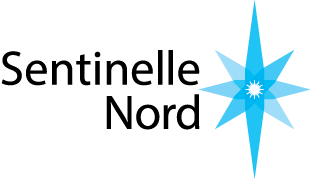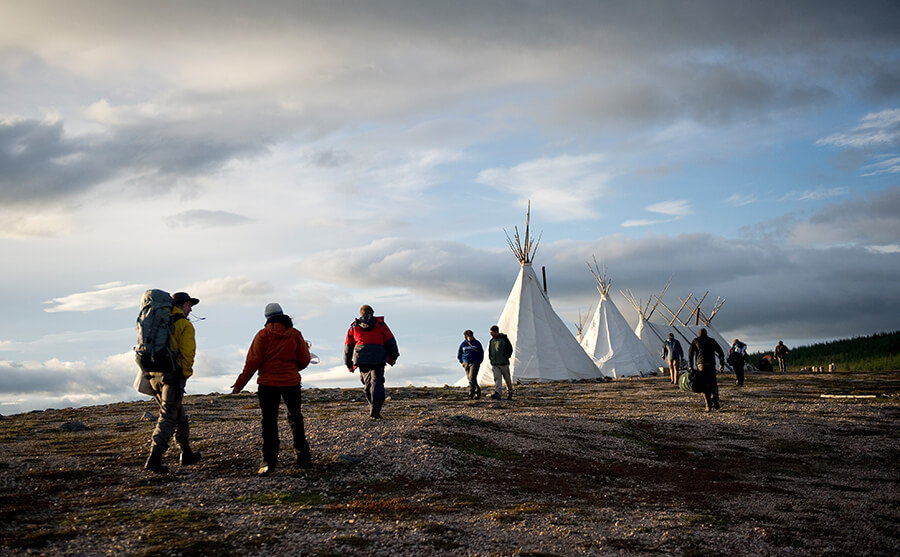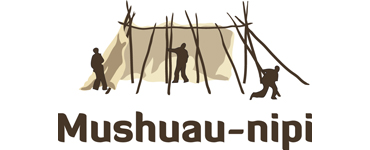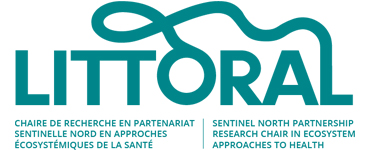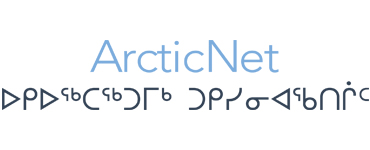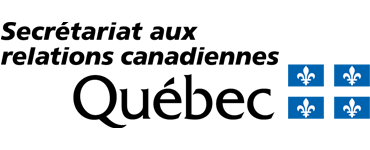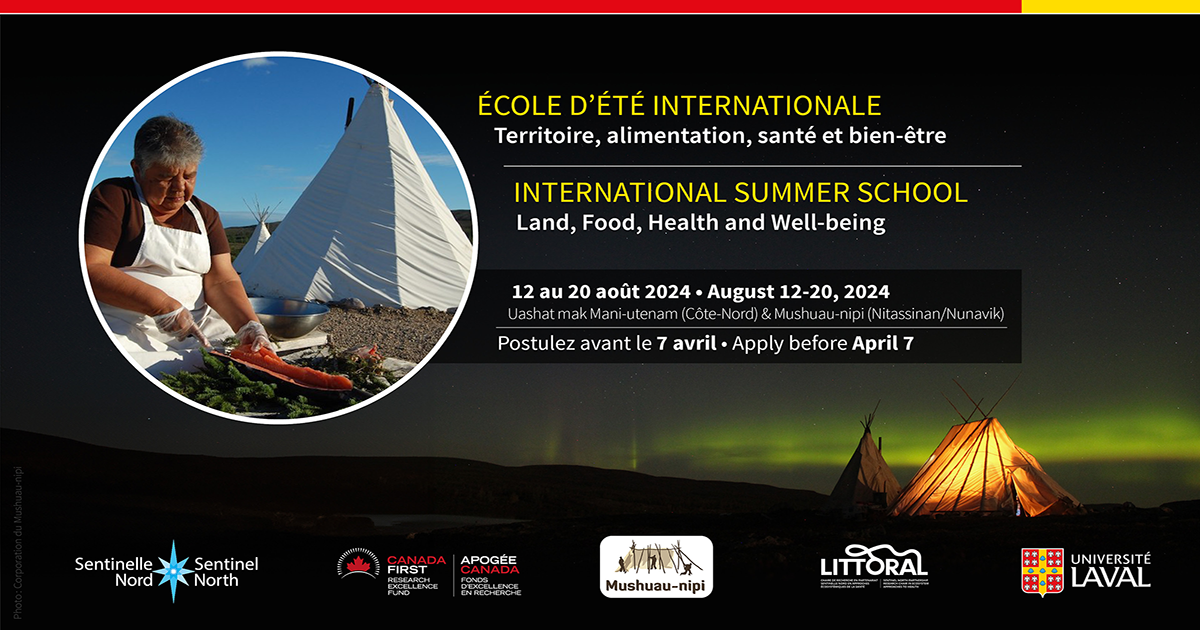International Summer School: Land, Food, Health and Well-being
August 12-20, 2024 – Uashat mak Mani-utenam (Côte-Nord)
and Mushuau-nipi (Nitassinan/Nunavik), Quebec, Canada
Health and well-being of Indigenous Nations and their communities are closely linked to health of the land. Traditional food is at the core of this relationship. It is part of cultural identity and contributes to the physical and mental health, spirituality, knowledge transmission and well-being of Indigenous Peoples.
This International Summer School aims to explore the links between environment, food, health, and well-being. This unique transdisciplinary and experiential training program took place in two locations. It began in Uashat mak Mani-utenam, an urban Innu community near Sept-Îles. After a train journey to Schefferville-Matimekush, the School continued to Mushuau-nipi, an ideal place for reflection, where participants enjoyed the unique experience of an Innu camp on the land along the George River.
During the School, participants developed and shared their knowledge and systemic vision of socio-environmental change (including climate change), biodiversity preservation and conservation, food systems and their links to community and human health and well-being. Activities, workshops and discussions explored these issues in greater depth, drawing on Indigenous, scientific and professional knowledge.
This School is a joint initiative of the Sentinel North program at Université Laval, the Littoral Chair and the Corporation du Mushuau-nipi, with the collaboration of APECS Canada and ArcticNet.
Photos and testimonials
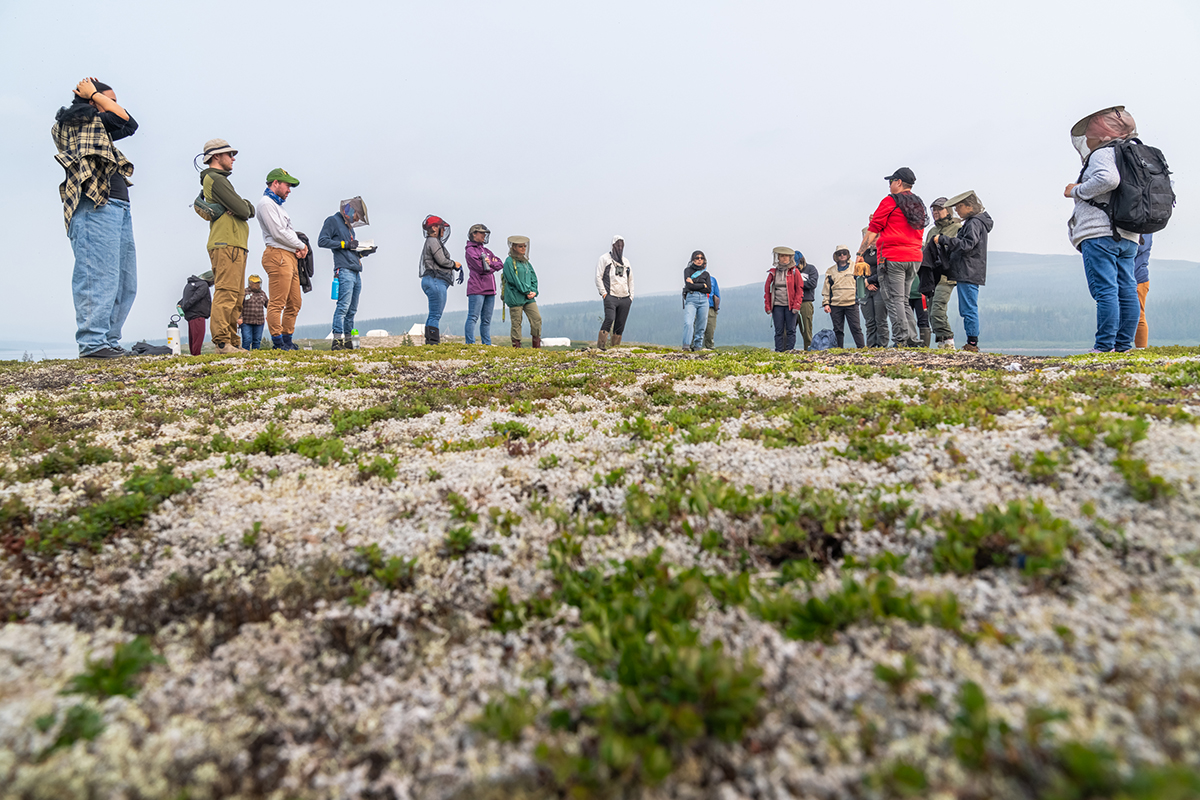 | 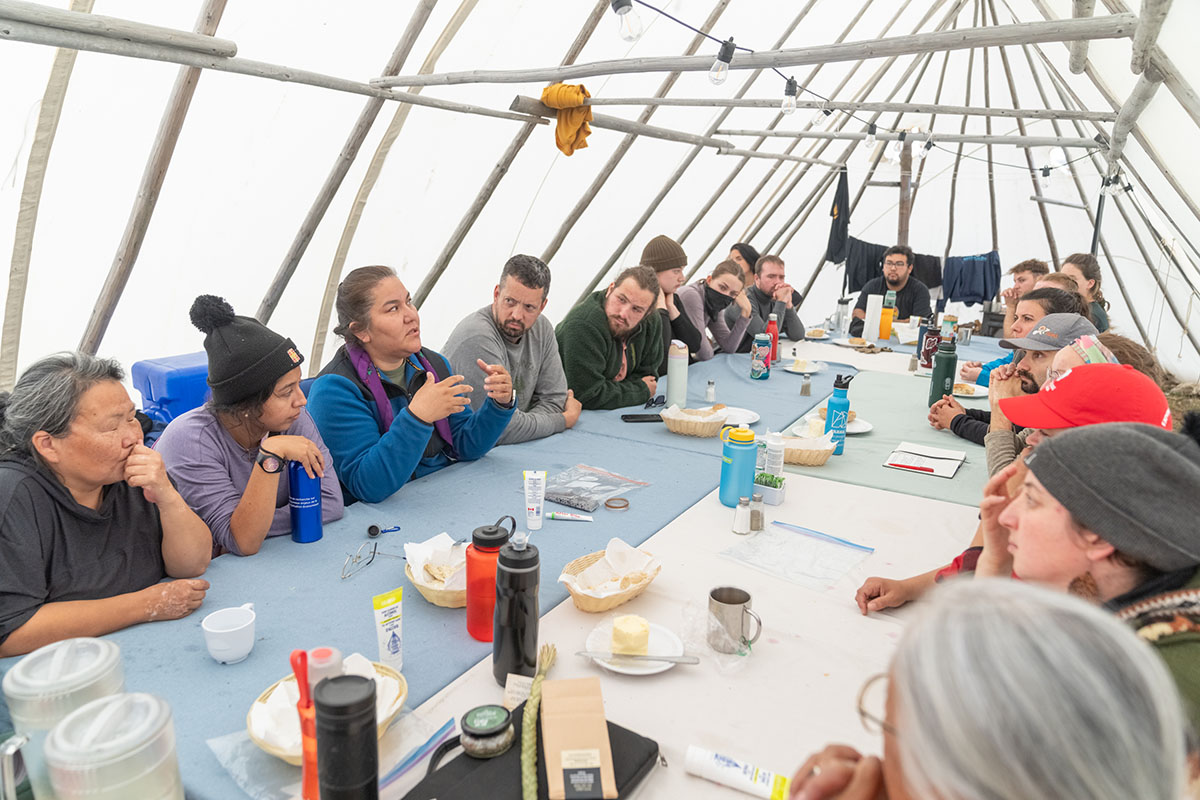 | 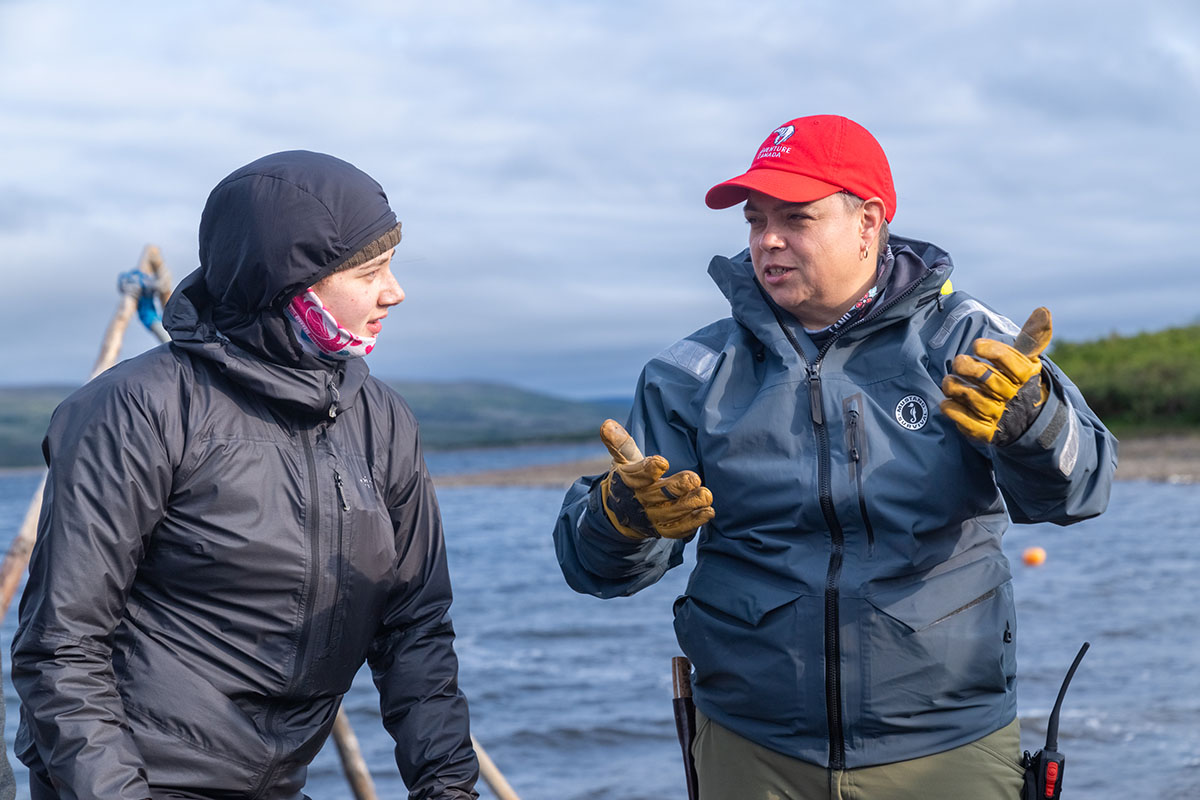 | 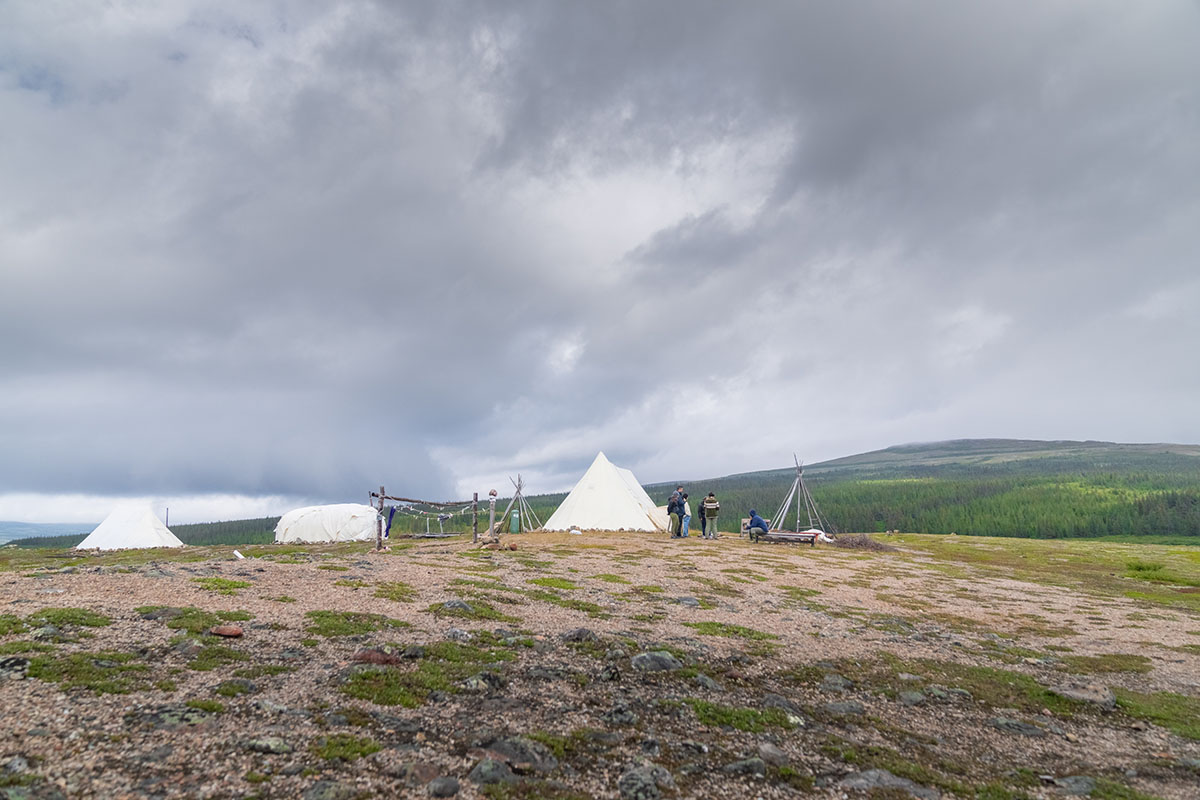 | 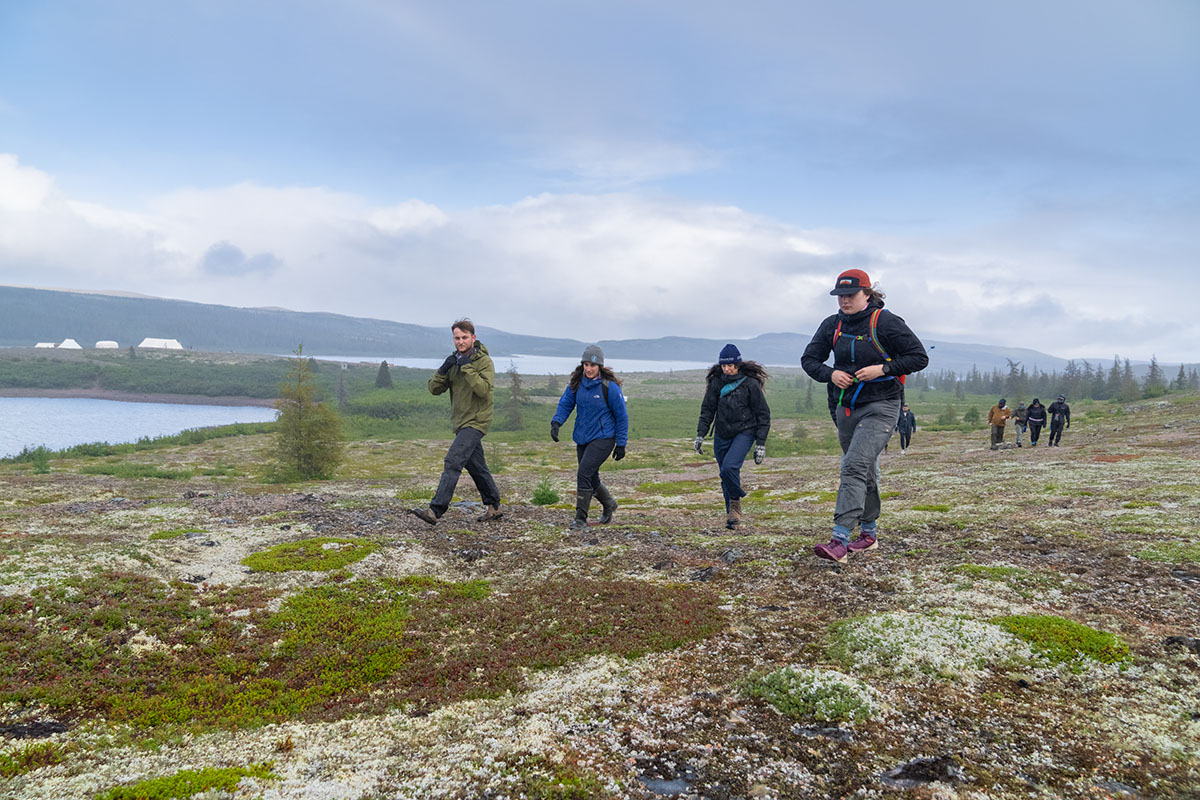 | 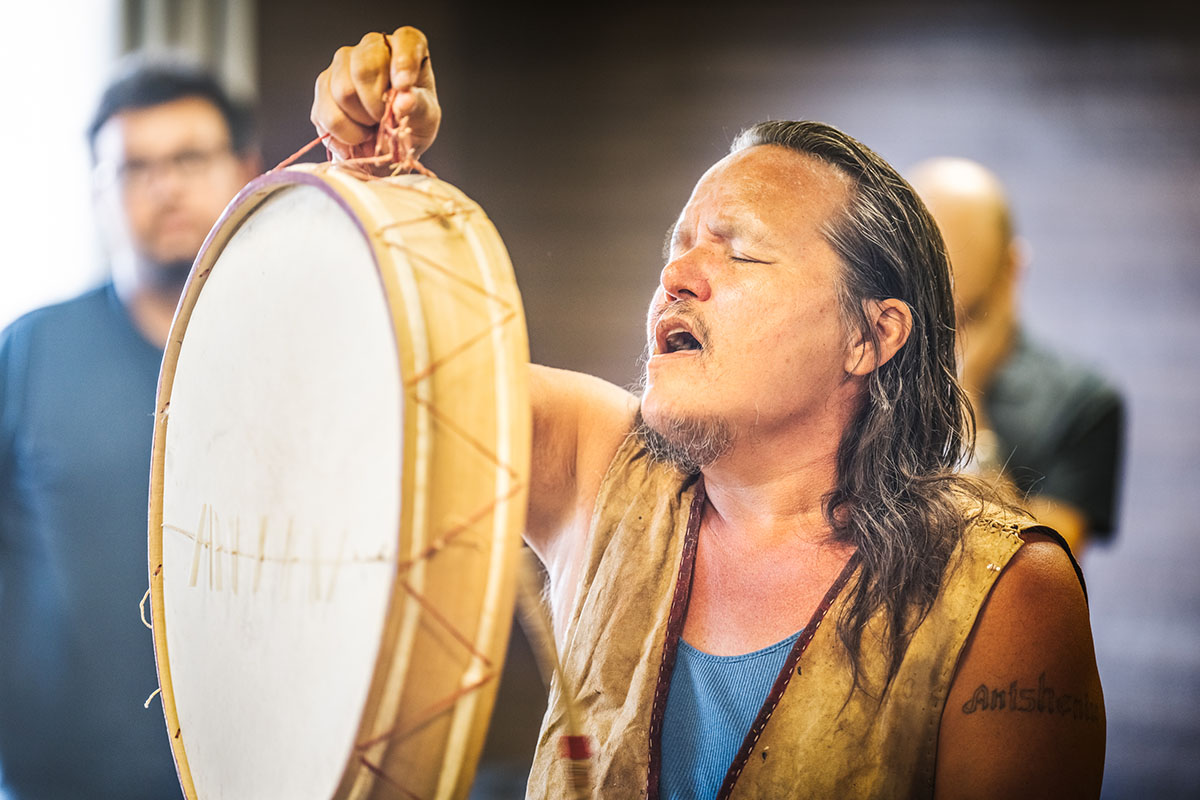 |
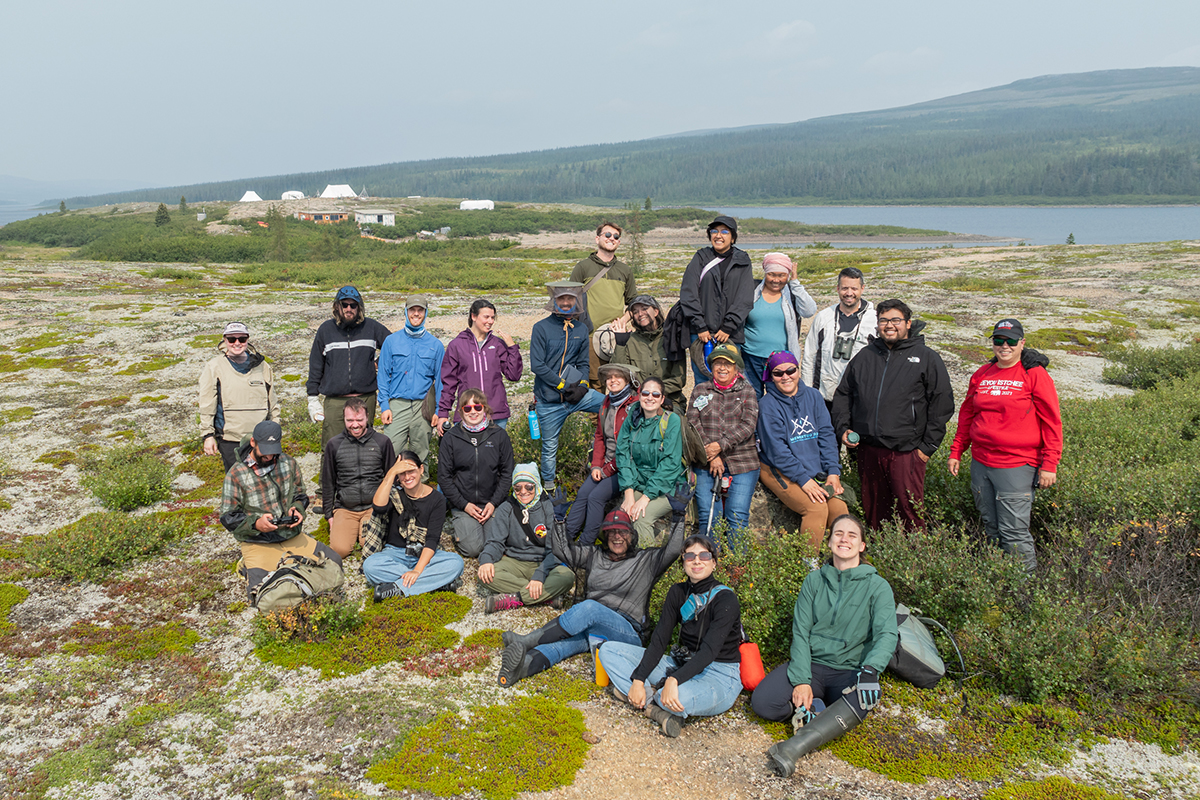 | 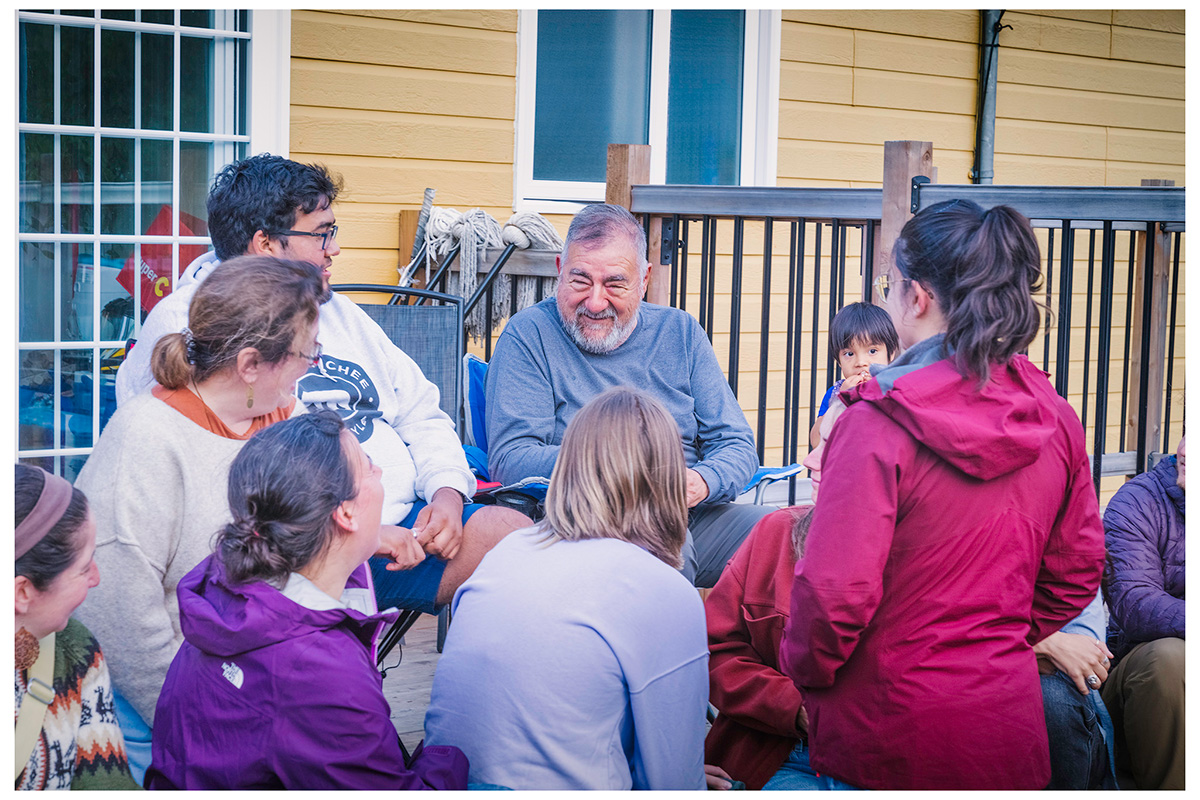 | 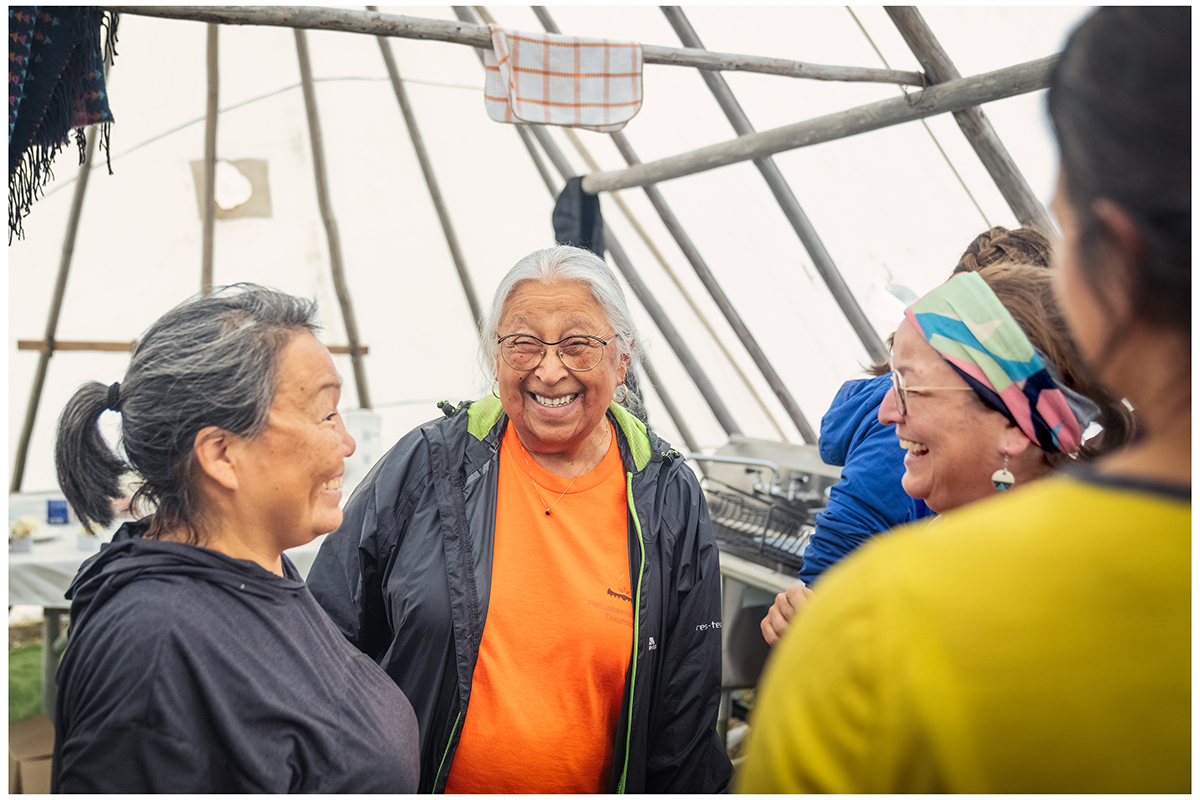 | 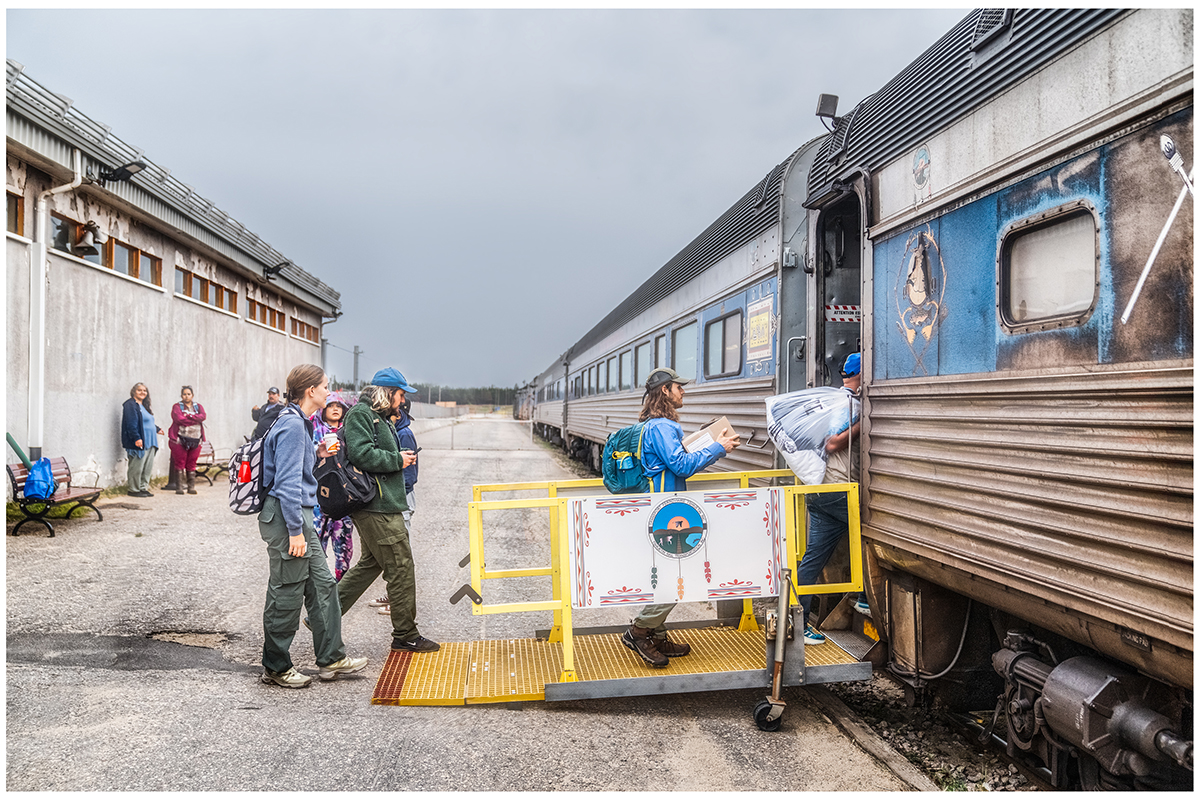 | 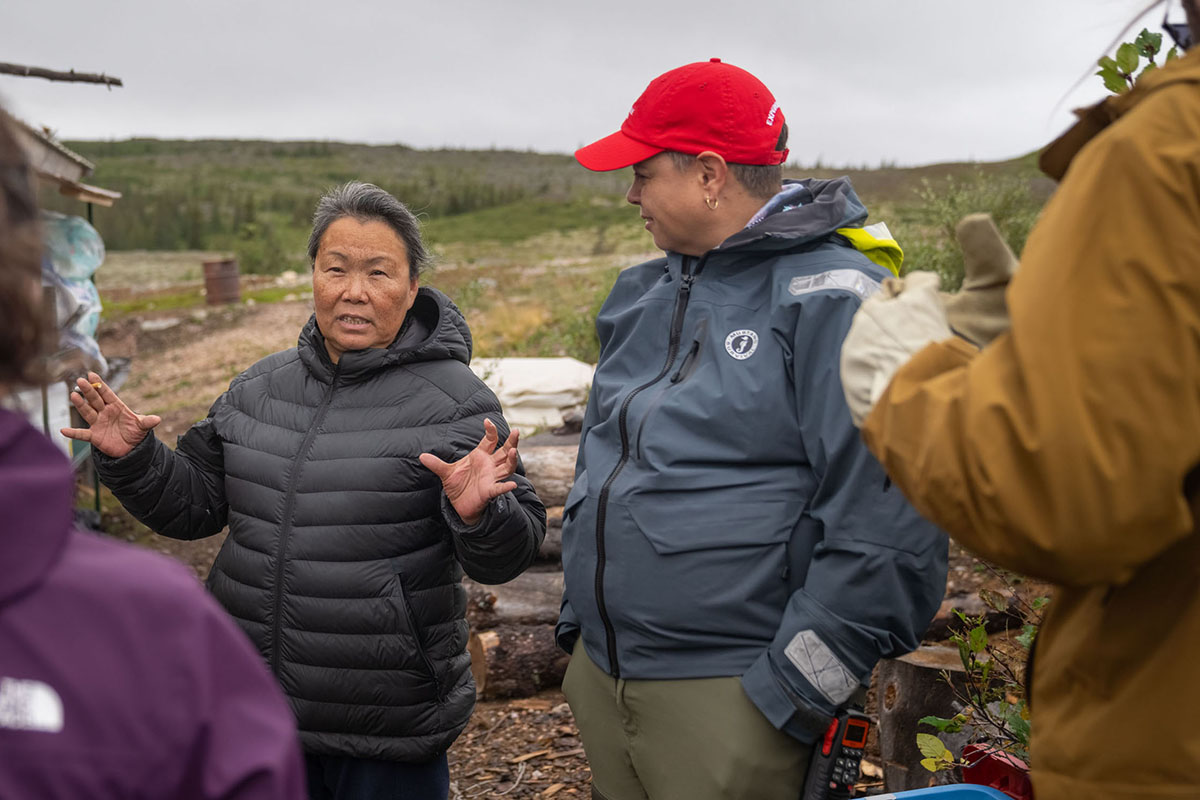 | 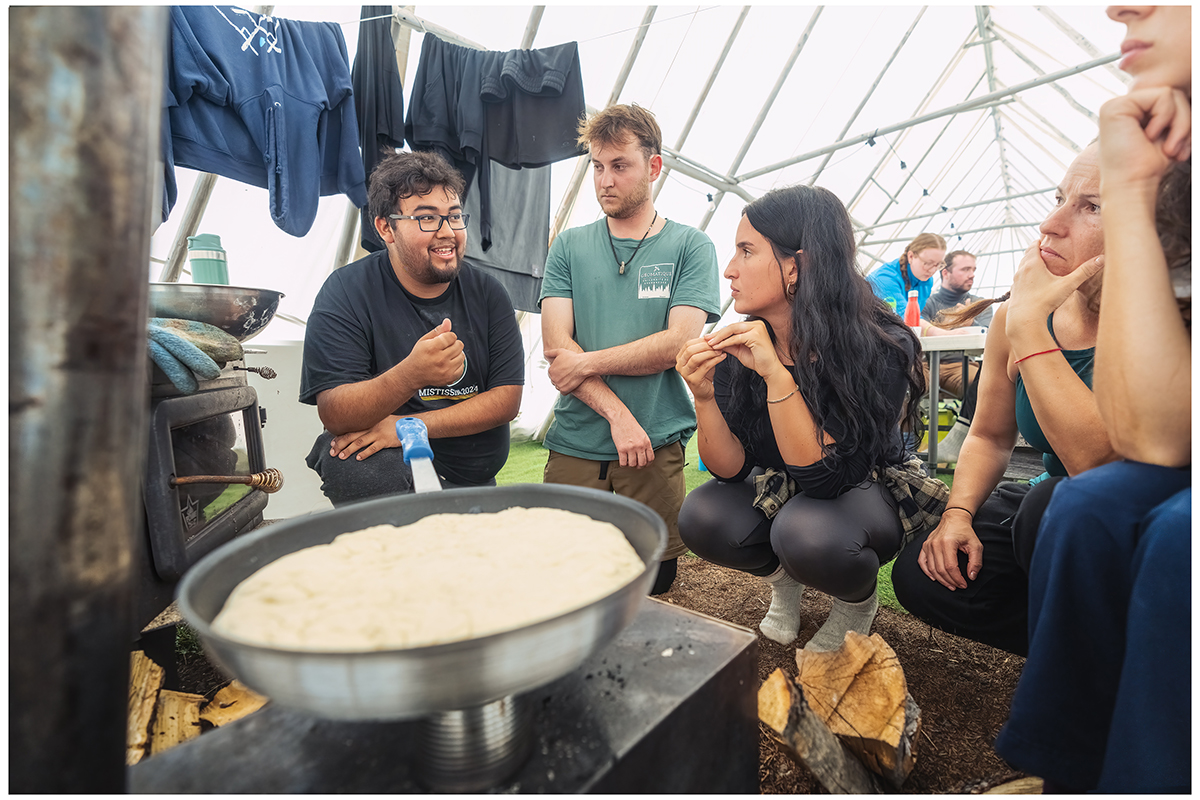 |
Click to enlarge. Credits: Pierre-Emmanuel Chaillon
As a Northern student pursuing my master's at a southern institution, I greatly appreciate the opportunity to integrate Northern and land-based learning experiences into my graduate studies. Aimee Yurris, étudiante à la maîtrise en santé publique, At the beginning of the summer school, I was a little afraid: What was a Colombian, a lawyer in international economic law going to do in an indigenous camp at the 56th parallel? That fear dissipated as soon as I met the team. How nice it is to belong, in our differences. During school I learned about indigenous peoples, their resilience, their connection to nature and their territory. At the same time, I was understanding, in an experiential way, many concepts and places that I had only had access to through books. How nice it is to coincide, and to understand, that far away, we could get to connect with ourselves. I went there, met wonderful people, listened to stories, and found myself belonging. I understood that between the stories my indigenous grandfather told me in the Colombian mountains and the stories I found by a campfire, there are many coincidences. That the struggles are the same and that humanity is found in each person who decides to fight for what they believe in, and to be faithful to their values. This school taught me more than concepts, it allowed me to value time, to let it flow, to appreciate nature and to understand the goals that life gives you, they are never random. And there, far away, a Colombian was able to understand that the connection with the territory, with life and with authenticity, goes far beyond a border, a language or a continent. Natalia Serrano Burbano, étudiante au doctorat en droit, It was great to meet and work with many new people. I hope to cross paths with them again sometime soon. Nathaniel Holloway, étudiant à la maîtrise en géographie, I would like to share my experience in a way that reflects how special it was for me. It feels truly significant to have been part of this adventure, and I deeply appreciate the incredible opportunity to participate in the summer school, especially knowing how the Mushuau-Nipi site was and still is a culturally rich territory of the Innu and Naskapi nations. This experience was unique and enriching, bringing together a very diverse group. The range of stories, perspectives, and knowledge shared was inspiring. The activities, discussions and stories were particularly impactful. I was deeply inspired by the integration of Indigenous and Western knowledge through concepts like Two-Eyed Seeing. This approach broadened my understanding of environmental and community issues and reinforced my commitment to incorporating these insights into my own research. I believe that many of the connections made will evolve into lasting friendships! Overall, this experience left me motivated and excited to continue exploring and wanting to contribute to community-driven research in northern Canada. Thank you, as I am really grateful for the privilege of being part of this experience. Loek Pascaud, étudiant à la maîtrise en géomatique appliquée et télédétection, The Summer School was an incredible and amazing experience on both a professional and human level. I was privileged to create friendship with a wide range of mentors, experts and participants. It was an honor to stay under the Shaputuan at Mushuau-nipi on this site so precious to the Innu and Naskapi Nations. It's a millennia-old gathering place where the relationship with the caribou takes on its full meaning. It was the perfect place to build relationships, learn about a variety of topics and get a glimpse of the Innu and Naskapi way of life. Philippe Boucher, étudiant au doctorat en études légales, |

